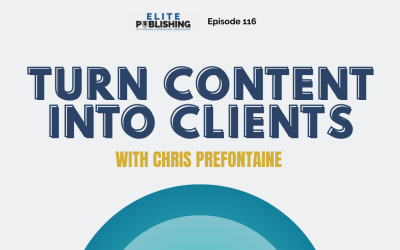Time is one of your most coveted and scarce resources as an entrepreneur, so maximizing pockets of time in your day through a productive routine is crucial.
Probably the most important period of your day is when you first wake up. Your morning routine can set you up for massive success the whole day. You can chose to linger in bed, hitting snooze and dreading the alarm, or you can set yourself up for massive daily productivity and success with the introduction of a simple 24-minute routine.
Here are the six steps to your ultra-productive 24-minute morning routine.
1. Brush your teeth (2 minutes)
One of the first things you should do when you get out of bed is brush your teeth. While you sleep, your mouth produces less saliva and actually dries out. Unfortunately with that decrease in saliva comes an increase in bacteria. So one of the best things you can do when you get up is to take two minutes to thoroughly brush your teeth and tongue to get rid of the influx of nighttime bacteria.
2. Drink water (1 minute)
Just like your mouth is dry, the rest of your body and brain need water after your sleep. After you’ve cleaned your mouth, you should go get a massive glass of water and drink away. I prefer to drink my water after I brush, simply because I don’t like the idea of drinking a big glass of water and flushing down massive quantities of nighttime bacteria into my system.
3. Meditate (7 minutes)
Most people make the mistake of thinking that they have to meditate for 30, 40 or even 60 minutes to experience results from meditation. I’ve found that six to seven minutes first thing in the morning is a great way to start off the day with a calm, clear head.
I personally enjoy the free Headspace app to guide me through seven minutes of meditation, but you can just as easily sit in a quiet, softly lit room and practice breathing in and out.
You can up it to 10 minutes or more if you want, but seven has been the sweet spot for me. It’s about getting some stillness and silence in the mind, nothing else. Doing it every day has introduced a calmer mindset and clearer perspective throughout my waking hours.
4. Focus (5 minutes)
How is five minutes of focusing different from meditation? The key is the intention behind the action. In meditation, I’m deliberately trying to introduce silence to my brain. No focus on thoughts, actions, to-do lists or anything other than just my breathing.
With five minutes of focusing, I set an alarm on my phone and for five minutes try to deliberately walk myself through the actions and needs of the day. This is less about looking at my calendar and more about trying to prioritize my day and lay out activities in chunks. I’m focused on the key business initiatives for the day and how I might achieve them, setting my mental goals for when I’m going to leave the office to work out or spend time with my family — whatever needs to get done in the day ahead of me that’s going to set me up for success.
It’s about focusing on how I want the day to go ahead of me so that when I lay down to sleep tonight, I can look back on the success of the day’s outcomes and shift my focus accordingly tomorrow for better results. When the alarm goes off after five minutes, I walk away from the focusing and let the day unfold. No more fussing. I know what I need to do and my brain has the clarity now to approach the day right.
5. Exercise (7 minutes)
Working out and moving is a huge part of building massive success. It’s not about being in perfect shape, but you have to move your body to move your brain and ideas around. I definitely commit time to formally working out, but I’ve noticed that inserting five to seven minutes of exercise into my morning wake-up routine really helps my body with the movement it needs to feel energized until I get to the gym later.
There’s a great app called the 7-Minute Workout that offers just enough of a quick movement blast to get my body going. It’s a great addition to your rock-star morning routine.
6. Stretch (2 minutes)
After the quick blast of physical movement — stretch! As we age, we are less flexible. You don’t have time for pulled muscles, your back going out or any of the other physical limitations that can often come with a stress-packed, fast-paced entrepreneurial lifestyle. Taking two minutes to stretch every day will greatly improve your flexibility of body and mind.
That’s it. After those six simple steps you’ll be ready to hop in the shower and then attack your day for massive success. You’ll have the flexibility, mental acuity and physicality to have a leg up on your competition and the workday ahead. Keep yourself strong, healthy and mentally fit with this simple but powerfully effective morning routine.
Original Article: https://www.entrepreneur.com/article/242171


![[New Release] The Making of a Warrior of Light by Theresa Rubi Garcia](https://eliteonlinepublishing.com/wp-content/uploads/2025/12/Theresa-Garcia-New-Release-Elite-Blog-Post-400x250.png)


0 Comments